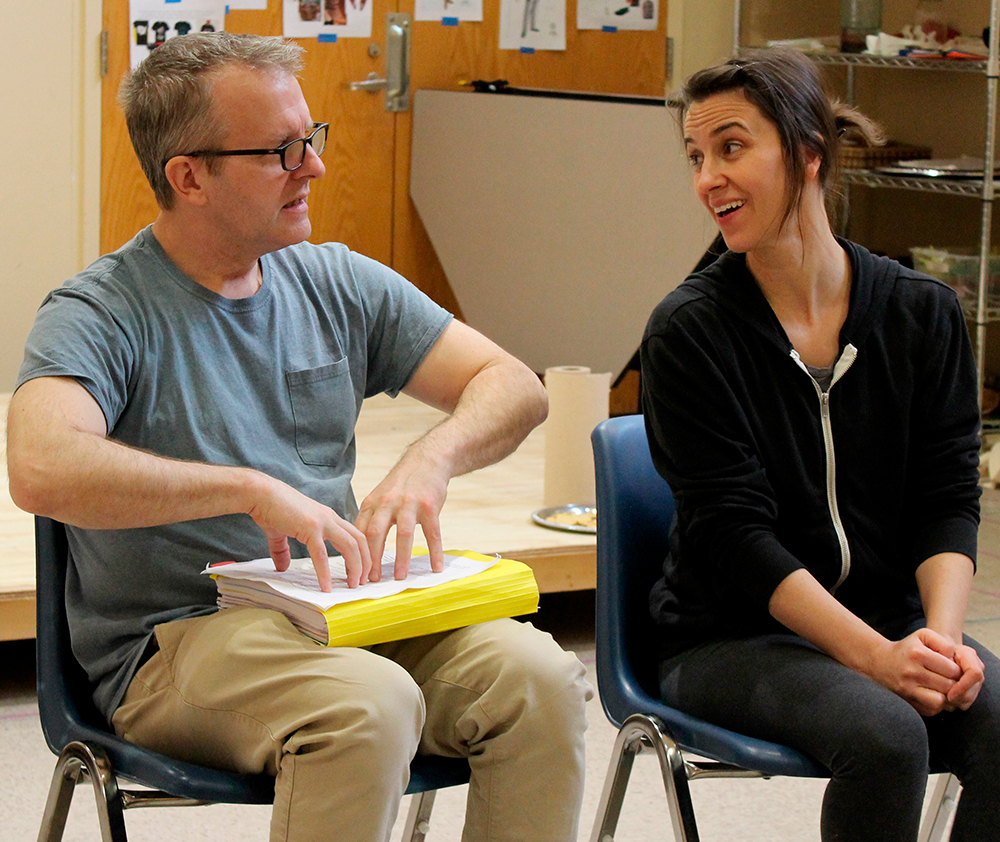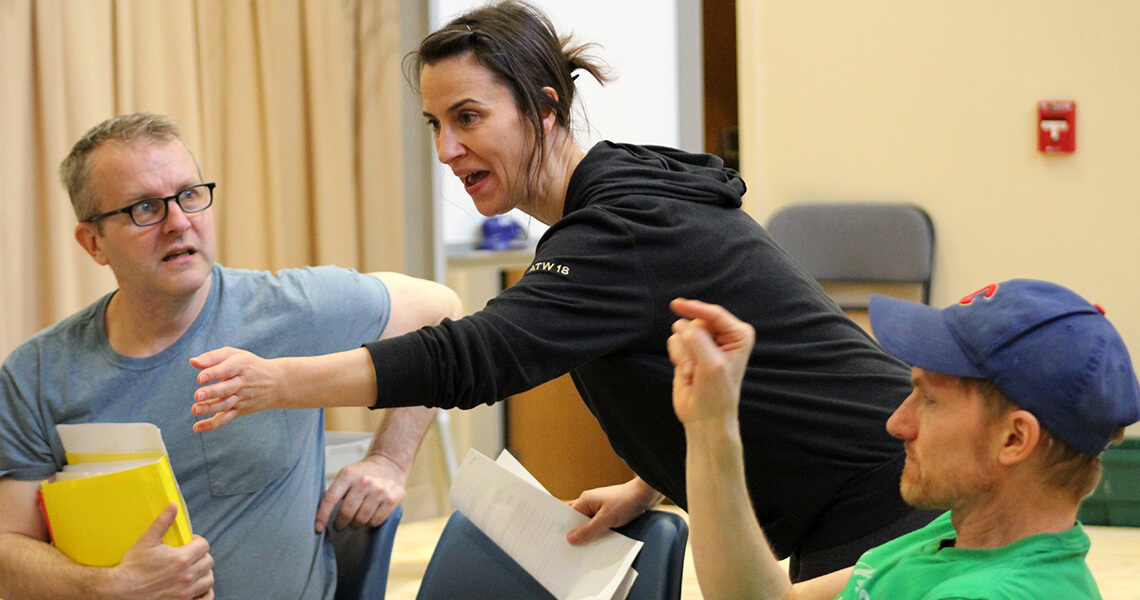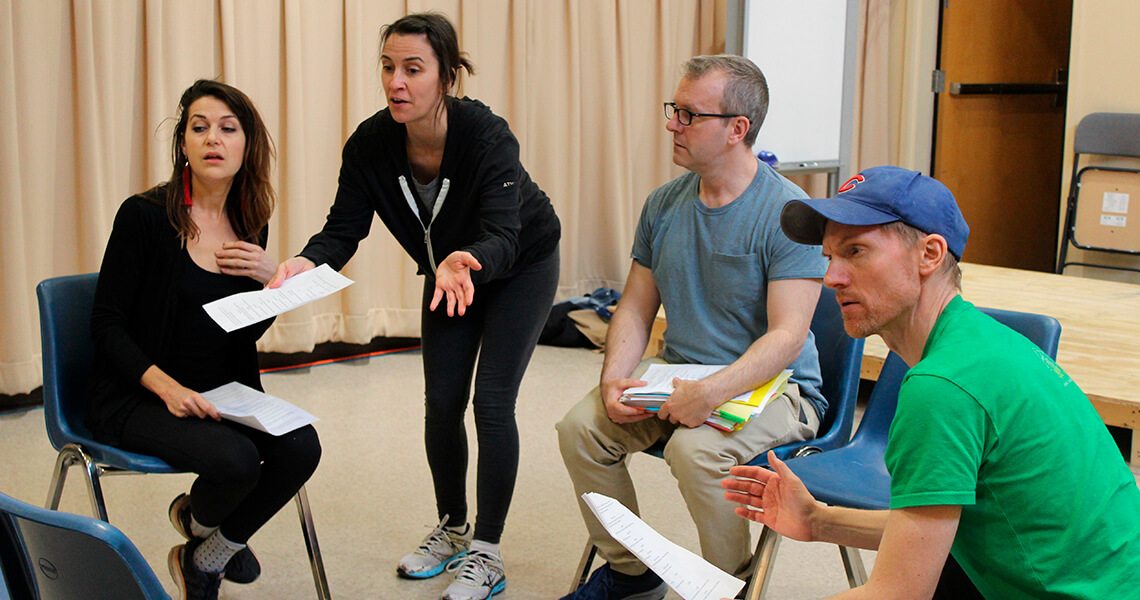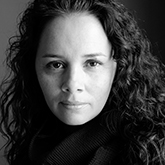Playwright's Notes by Larissa FastHorse
Mar 18, 2019

In The Thanksgiving Play, a group of liberal artists attempt to devise a politically correct Thanksgiving play for elementary schools. Slowly but surely, their good intentions dissolve into an outrageous sendup of PC behavior. This biting satire treads the minefields of appropriation to inject some laughter into activism, apathy and all the assumptions in between.
Playwright Larissa FastHorse provides her notes below on crafting this fresh, satirical comedy.

I am constantly surprised by the seemingly intelligent people I meet who have never questioned what they read in their history books nor do they want to. When I suggest that most of what they have been told about American history is a lie or at best heavily skewed for a political agenda, they reject my statement flat out. Apparently in the past, it was not possible for a human to write a lie or a government to create a national narrative that was based in furthering political gain.
The reality is that even when history is recorded in the moment (which is rare), we need to ask, “Who is recording this? What are they leaving out? Who isn’t being heard?” That last question is at the heart of my life in this play. As an Indigenous person in America, most of what is given to me as history is not only missing millions of voices but is blatantly wrong. What was recorded and reproduced was often an intentional choice to support governmental policies of manifest destiny and genocide to make America larger, wealthier and great. But many Americans prefer to hold on to fond memories of favorite history teachers and novels and movies and summer vacations even if they are based on lies.
So, I’ve changed tactics with this play. I wrote a really funny comedy. Like a “laugh so much that it’s gonna add minutes to your life” comedy. And I started with an easy topic, Thanksgiving. Just to be clear, I love Thanksgiving. I love a whole day set aside to focus on gratitude and food.
Spoiler alert: The Thanksgiving we know and love didn’t exist. It didn’t even become a holiday until after the Civil War when Lincoln needed to reunite the states in a benign way. My hope is that you leave the theatre asking your own questions about it, and then question everything you’ve been told.

But that’s only one part of the script. The rest is just real people, primarily liberal well-meaning folks that we all know and love and are. Like us, they are deeply flawed and fighting for things with a ferocity that is beautiful and tragic. More tragic is that as ridiculous as they seem at times, the reality of what I have experienced as an Indigenous person in America is so bizarre that people don’t believe it.
Most theatres have never produced a play by a Native American person, and their fears about doing it wrong or offending Natives are paralyzing. But I need people to act and make a mistake and so together we can fix it and learn to do better next time.
Pilamaya ye,
Larissa FastHorse

To learn more about the Playhouse's production of The Thanksgiving Play, visit our production detail page.
Playwright Larissa FastHorse provides her notes below on crafting this fresh, satirical comedy.

Nat DeWolf (Caden), Jennifer Bareilles (Logan) and Scott Parkinson (Jaxton) in rehearsal for The Thanksgiving Play.
I am constantly surprised by the seemingly intelligent people I meet who have never questioned what they read in their history books nor do they want to. When I suggest that most of what they have been told about American history is a lie or at best heavily skewed for a political agenda, they reject my statement flat out. Apparently in the past, it was not possible for a human to write a lie or a government to create a national narrative that was based in furthering political gain.
The reality is that even when history is recorded in the moment (which is rare), we need to ask, “Who is recording this? What are they leaving out? Who isn’t being heard?” That last question is at the heart of my life in this play. As an Indigenous person in America, most of what is given to me as history is not only missing millions of voices but is blatantly wrong. What was recorded and reproduced was often an intentional choice to support governmental policies of manifest destiny and genocide to make America larger, wealthier and great. But many Americans prefer to hold on to fond memories of favorite history teachers and novels and movies and summer vacations even if they are based on lies.
So, I’ve changed tactics with this play. I wrote a really funny comedy. Like a “laugh so much that it’s gonna add minutes to your life” comedy. And I started with an easy topic, Thanksgiving. Just to be clear, I love Thanksgiving. I love a whole day set aside to focus on gratitude and food.
Spoiler alert: The Thanksgiving we know and love didn’t exist. It didn’t even become a holiday until after the Civil War when Lincoln needed to reunite the states in a benign way. My hope is that you leave the theatre asking your own questions about it, and then question everything you’ve been told.

Ashley Austin Morris (Alicia), Jennifer Bareilles (Logan), Nat DeWolf (Caden) and Scott Parkinson (Jaxton) in rehearsal for The Thanksgiving Play.
But that’s only one part of the script. The rest is just real people, primarily liberal well-meaning folks that we all know and love and are. Like us, they are deeply flawed and fighting for things with a ferocity that is beautiful and tragic. More tragic is that as ridiculous as they seem at times, the reality of what I have experienced as an Indigenous person in America is so bizarre that people don’t believe it.
Most theatres have never produced a play by a Native American person, and their fears about doing it wrong or offending Natives are paralyzing. But I need people to act and make a mistake and so together we can fix it and learn to do better next time.
Pilamaya ye,
Larissa FastHorse

To learn more about the Playhouse's production of The Thanksgiving Play, visit our production detail page.